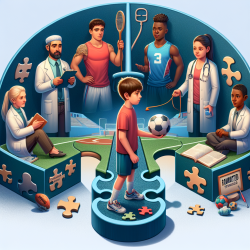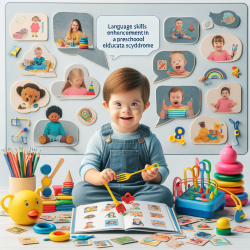Introduction
In the realm of pediatric health, concussions represent a significant challenge, particularly when symptoms persist beyond the typical recovery period. A recent study, "Collaborative care model for treatment of persistent symptoms after concussion among youth (CARE4PCS-II): Study protocol for a randomized, controlled trial," offers groundbreaking insights into improving outcomes for children with persistent post-concussive symptoms (PCS).
The Collaborative Care Model
The CARE4PCS-II study explores a collaborative care intervention that integrates cognitive-behavioral therapy (CBT), care management, and psychotropic medication consultation. This model is designed to address both the physical and psychological symptoms associated with PCS. The study hypothesizes that adolescents receiving this intervention will demonstrate significant improvements in PCS, anxiety, and depression compared to those receiving usual care.
Key Findings
- Improved Symptom Management: Adolescents receiving collaborative care showed reductions in PCS and related psychological symptoms.
- Enhanced Quality of Life: The intervention improved health-related quality of life and school performance.
- Integration Across Settings: The model facilitates coordination across primary care, sports medicine, and educational settings, ensuring comprehensive care.
Implications for Practitioners
For practitioners, the CARE4PCS-II study underscores the importance of integrating mental health support with traditional medical care for concussion management. Here are some actionable steps practitioners can take:
- Adopt a Multidisciplinary Approach: Collaborate with mental health professionals to provide holistic care for youth with PCS.
- Utilize Telehealth: Implement HIPAA-compliant video conferencing to deliver CBT and care management, expanding access to treatment.
- Focus on Education: Educate families about the benefits of integrated care and the potential for improved outcomes.
Encouraging Further Research
While the CARE4PCS-II study provides a robust framework, further research is needed to explore the long-term benefits and potential adaptations of the collaborative care model. Practitioners are encouraged to contribute to this growing body of research by:
- Conducting Follow-Up Studies: Examine the long-term impact of collaborative care on PCS and related symptoms.
- Exploring New Technologies: Investigate how emerging technologies can enhance the delivery of collaborative care.
Conclusion
The CARE4PCS-II study offers compelling evidence for the effectiveness of a collaborative care model in treating persistent symptoms after concussion among youth. By integrating medical and mental health care, practitioners can significantly improve outcomes for children, enhancing their quality of life and academic performance.
To read the original research paper, please follow this link: Collaborative care model for treatment of persistent symptoms after concussion among youth (CARE4PCS-II): Study protocol for a randomized, controlled trial.










